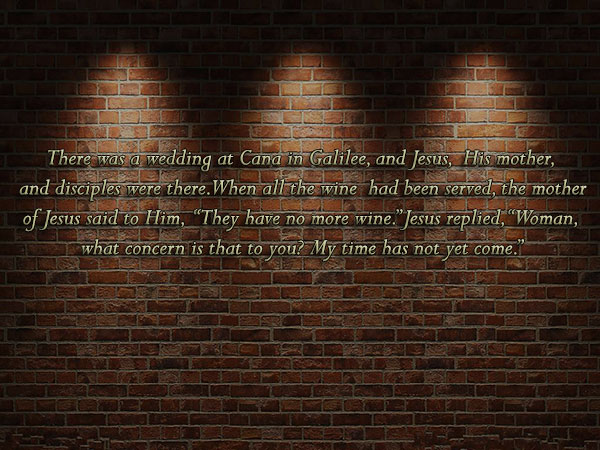Gospel: Jn 7:40-53
Many who had been listening to these words began to say, “This is the Prophet.” Others said, “This is the Christ.” But some wondered, “Would the Christ come from Galilee? Doesn’t Scripture say that the Christ is a descendant of David and from Bethlehem, the city of David?” The crowd was divided over him. Some wanted to arrest him, but no one laid hands on him.
The officers of the temple went back to the chief priests, who asked them, “Why didn’t you bring him?” The officers answered, “No one ever spoke like this man.” The Pharisees then said, “So you, too, have been led astray! Have any of the rulers or any of the Pharisees believed in him? Only these cursed people, who have no knowledge of the law!”
Yet one of them, Nicodemus, who had gone to Jesus earlier, spoke out, “Does our law condemn people without first hearing them and knowing the facts?” They replied, “Do you, too, come from Galilee? Look it up and see for yourself that no prophet is to come from Galilee.”
And they all went home.REFLECTION:
The men and women of God are always an enigma to others. Their credentials after all are not accessible to scrutiny of the senses. It is something that happens in the inner recesses of the person that compels him or her to do God’s work. They cannot keep it or ignore it. As Jeremiah said “But his word in my heart becomes like a fire burning deep within my bones…” (Jer. 20,19) Hence the religious authorities of Jesus’ time cannot place Him. He does not fit into their categories that would qualify Him as a man of God. But those who have sensitivity to the hidden workings of God could feel this calling. Nicodemus could not understand why he is defending Jesus. He felt that there is something more than meets the eye about Him. He could not resort to physical evidences such as Scriptures and lineage to base his belief in Jesus. It would take time before all becomes clear to him. He stands in front of a mystery so big that he needs time to comprehend a part of it.
2014 Copyright. Claretian Communications Foundation Inc








